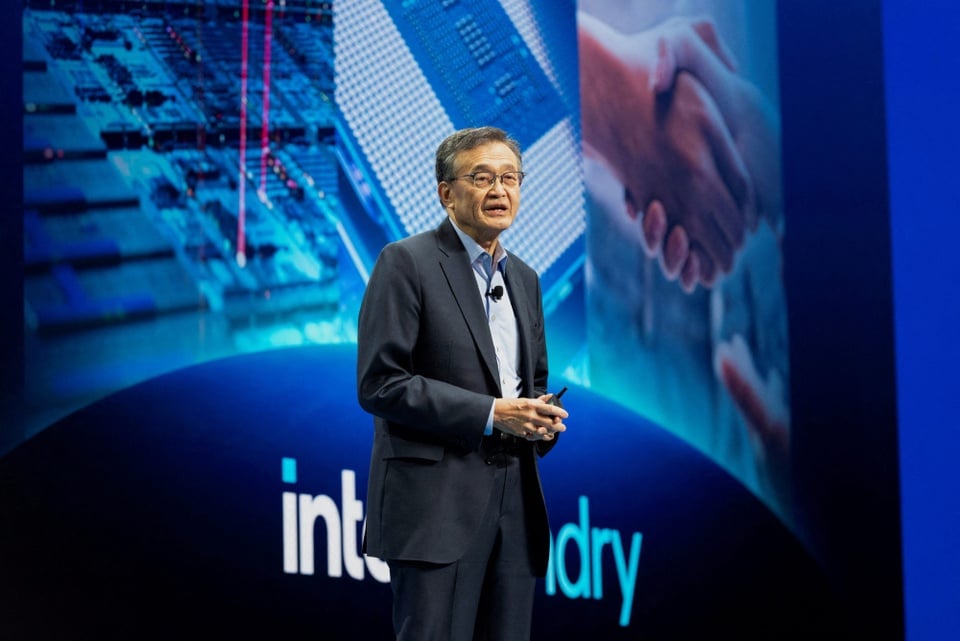 |
Intel CEO Lip-Bu Tan speaks at a conference in April. Photo: Reuters . |
Intel CEO Lip-Bu Tan is under great pressure. Before being called upon by US President Donald Trump to resign, he reportedly had disagreements with some members of the board of directors.
According to WSJ sources, Tan and some members have been at odds since he was appointed CEO, regarding the maintenance of chip manufacturing operations at Intel. Tan's recent efforts to raise capital and acquire an AI company have been blocked by the board.
On August 7, tensions escalated when Mr. Trump suddenly called for Tan to resign. The US President said that the Intel CEO was involved in some business relationships with China.
CEO "tied hands" by Intel
Intel has so far stood by Tan. In a statement on August 7, the company said the board and Tan are “committed to advancing the national security and economic interests of the United States” and making investments consistent with Mr. Trump’s “America First” policy.
Intel has dominated for years as the world's most valuable semiconductor company. However, its AI slump has seen its market value halve since the start of last year.
Intel shares rose more than 13% in March when the company appointed Tan as CEO. However, Tan’s honeymoon soon ended. According to the WSJ , he and Chairman of the Board Frank Yeary soon clashed over whether to continue chipmaking or withdraw completely.
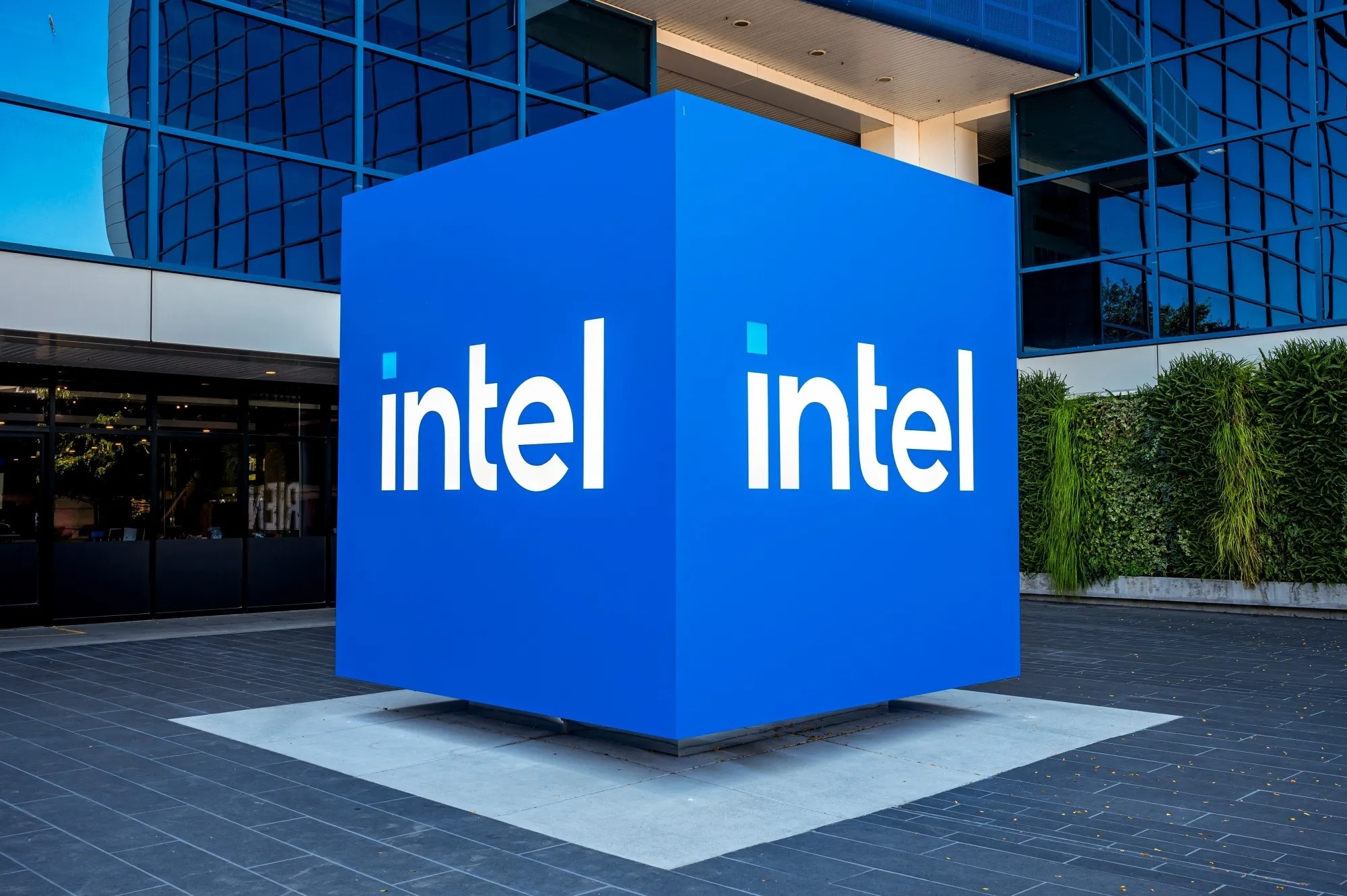 |
Intel logo in front of the company's headquarters in California. Photo: Bloomberg . |
The business includes several of Intel’s chip factories. The unit is expected to be loss-making in 2024, despite accounting for a third of the company’s revenue. Some say it is politically important to maintain the US semiconductor supply chain.
Yeary is said to have been planning for Intel to exit the foundry business entirely since the beginning of the year. Yeary’s proposal included a spin-off of the manufacturing business, allowing companies like Nvidia and Amazon to take a stake.
On the other hand, Tan argues that foundry is integral to Intel’s success, helping the US not rely on foreign semiconductor companies. By comparison, Samsung and TSMC plan to build factories in the US, but the R&D process still takes place elsewhere.
According to WSJ sources, Intel has contacted several investment banks on Wall Street to support raising billions of dollars in capital, expected to be used to invest in factories and "beautify" the balance sheet.
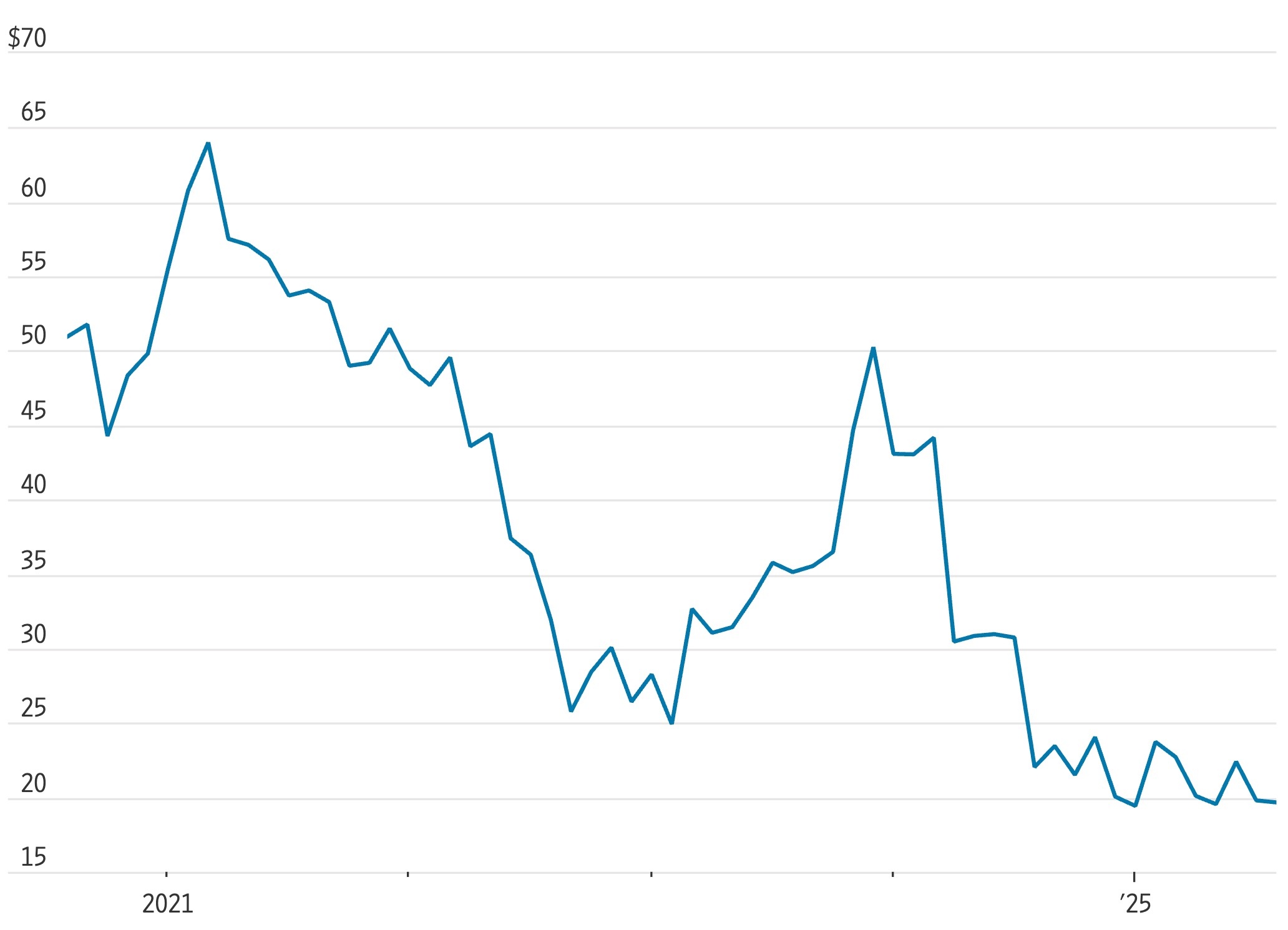 |
Intel stock from August 2020 to August 2025. Photo: WSJ . |
Intel's leadership hopes to be able to implement the plans during the financial reporting period in late July. However, some board members (including Yeary) want to delay the timeframe, possibly to 2026.
Intel is also considering acquiring companies in the AI space. Tan and his team see this as an opportunity for the company to catch up with rivals like Nvidia and AMD. However, Intel’s board is carefully considering this strategy.
Intel also pursued strategic partnerships without success. According to WSJ , Tan felt like the board wanted to “tie his hands” in his plan to revive the company, especially when it came to financial decisions.
“No more blank checks. Every investment needs to make economic sense,” Tan stressed in a memo to Intel employees.
Regarding investments in China
Mr. Trump's criticism of Tan is seen as a surprising move, especially when Intel has a good impression with the administration.
Tan reportedly met for about an hour in April with US Commerce Secretary Howard Lutnick about plans to revive Intel. The two spoke occasionally by phone and planned to meet later that month. Lutnick hinted to the CEO that the administration would support Intel if it had a realistic plan to attract big customers like Apple.
On August 7, Mr. Trump posted on Truth Social , saying that Tan needed to resign because he was “very conflicted” and “there is no other solution to this problem.”
The US president appeared to be alluding to recent developments involving Cadence Design, the company Tan was CEO of from 2008 to 2021, and his venture investments in Chinese businesses.
In July, Cadence pleaded guilty and paid more than $140 million to resolve charges from the U.S. Justice Department over its sale of self-designed chips to China's National University of Defense Technology.
 |
Photo of Intel's new factory in Ohio. Photo: Intel . |
In 2015, the US banned the sale of domestic components to the school for allegedly being involved in “simulated nuclear explosion” tests and some war-related activities, WSJ said.
Tan is also one of the famous technology investors in China. He founded investment firm Walden International in 1987, and has invested in manufacturing/electronics companies in this country since the early 1990s.
In 2001, Walden became one of the first investors in chip maker SMIC. Tan served on the company's board until 2018.
Walden reportedly invested in more than 500 companies, including more than 120 semiconductor businesses, earning Tan the nickname “Mr. Chip” in China. By 2021, Walden had withdrawn its investment from SMIC.
Senator Tom Cotton reportedly emailed Yeary about Tan’s ties to Chinese companies. Senator Bernie Moreno of Ohio, where Intel recently postponed plans to build a new factory, also called for Tan’s resignation.
Source: https://znews.vn/ap-luc-lon-voi-ceo-intel-post1575246.html


![[Photo] Binh Trieu 1 Bridge has been completed, raised by 1.1m, and will open to traffic at the end of November.](https://vphoto.vietnam.vn/thumb/1200x675/vietnam/resource/IMAGE/2025/10/2/a6549e2a3b5848a1ba76a1ded6141fae)





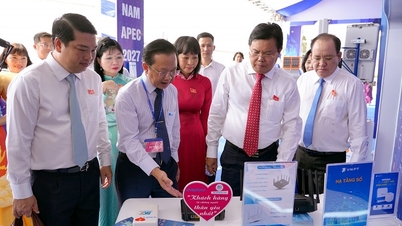



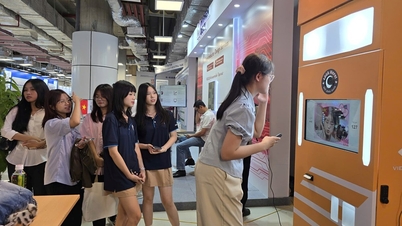



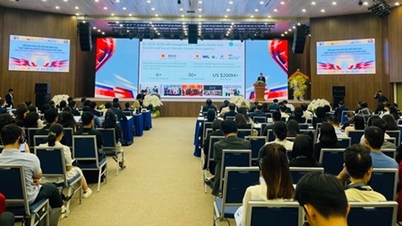




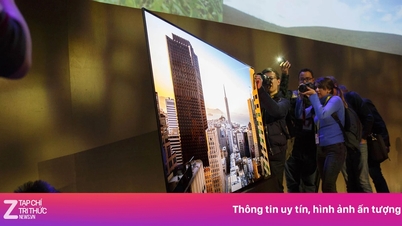


























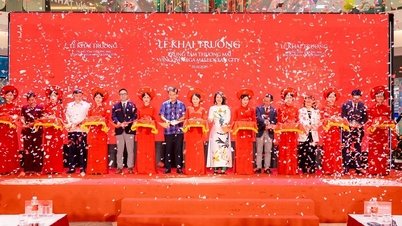

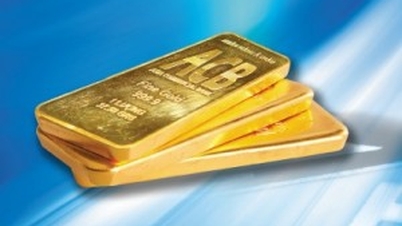

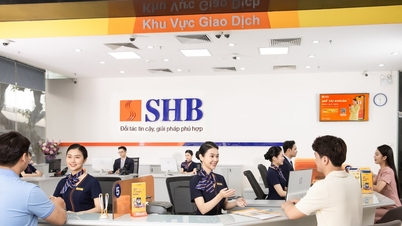







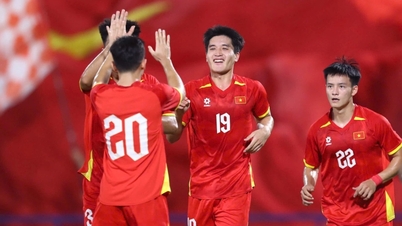
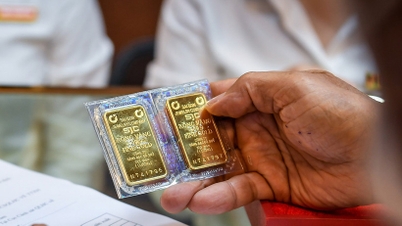


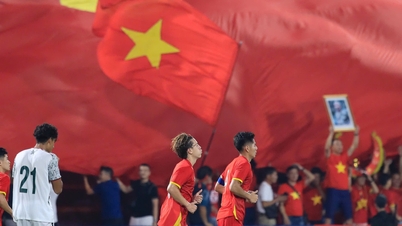

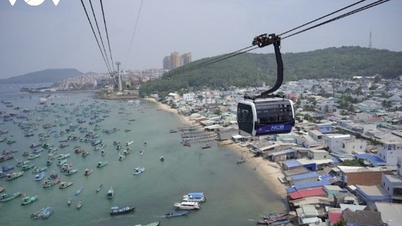
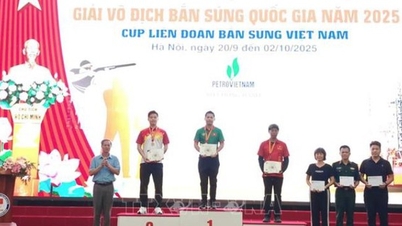
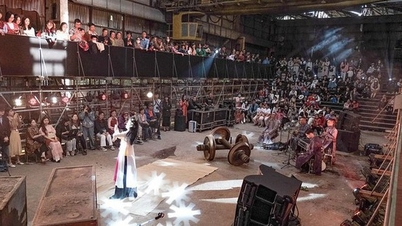
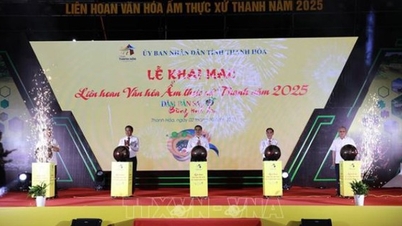




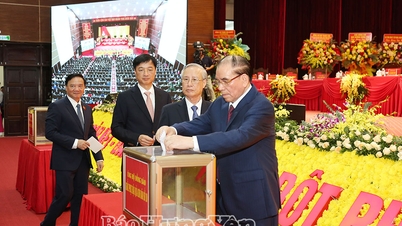

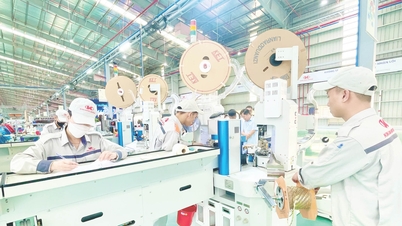



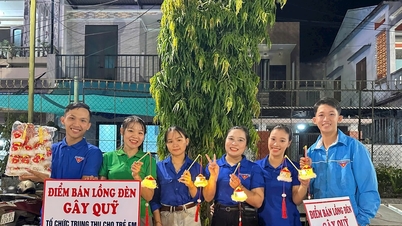
















Comment (0)